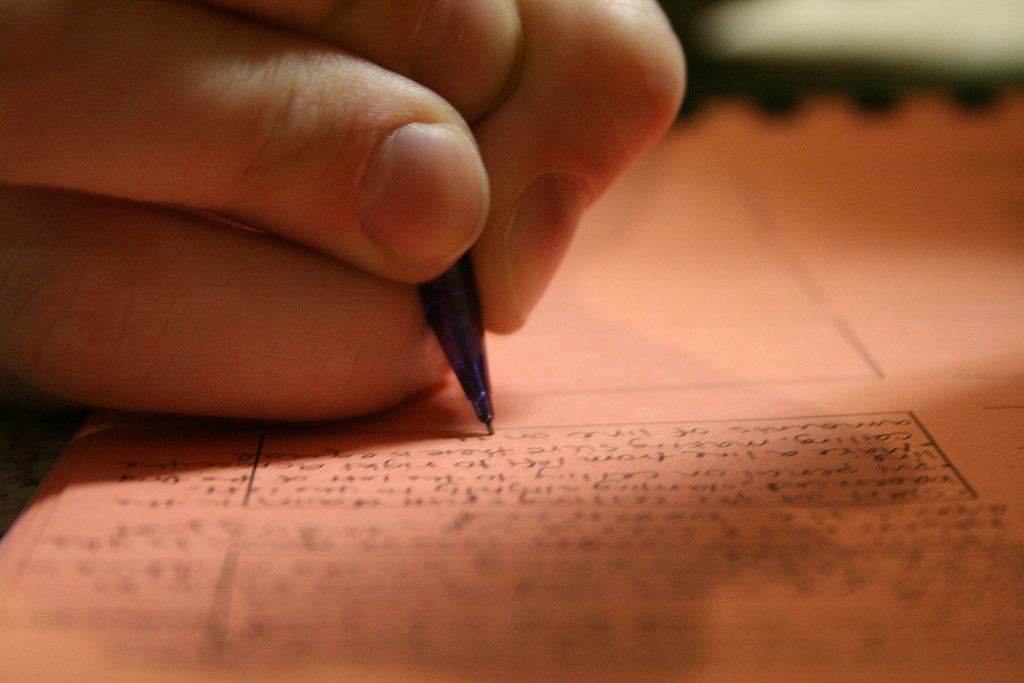 This secret could be the key to you writing that book you have had an idea for for so many years.
This secret could be the key to you writing that book you have had an idea for for so many years.
At the same time, this, quite possibly, is one of the worst-kept secrets about writing. It is so obvious most people miss it. (In fact, you will probably laugh when I tell you.) I mean, authors of all kinds have talked about it for years—many mention it in the front or back of their books—and still, because people don’t recognize it, they don’t write.
I think the comic innovator and filmmaker Charlie Chaplin expressed this secret best when he said:
Genius is the ability to edit.
(Are you laughing?) Yeah, believe it or not, the key to great writing—and great filmmaking, as Chaplin would say—is really simple: it’s editing. It’s the ability to try something once, and then redo it—and redo it and redo it and redo it—until you get it right.
How the greats write
Sure, the greats could turn out some awesome sentences first draft, but they will tell you themselves that most of their stuff came from a process. They wrote, they edited, and they rewrote. (Now, when I talk about editing I am not just talking about fixing typos and getting all of the commas in the right places—editing is that, but it is more a thorough reanalysis of the thinking you have on paper. I will save getting more into that for upcoming blogs, though.)
I remember reading somewhere that Ernest Hemingway edited a paragraph in A Farewell to Arms twenty-six times. Sure, Hemingway was a great writer, but he was also a great editor. He had very strict style rules he adhered to when he was editing, but not when he was writing. As he described in a letter to F. Scott Fitzgerald (pardon his vernacular):
For Christ sake write and don’t worry about what the boys will say nor whether it will be a masterpiece nor what. I write one page of masterpiece to ninety-one pages of shit. I try to put the shit in the wastebasket.
Stephen King put it this way in a recent article:
The writer must have a good imagination to begin with, but the imagination has to be muscular, which means it must be exercised in a disciplined way, day in and day out, by writing, failing, succeeding, and revising.
King also said, “To write is human, to edit is divine.” He seems to be one who has a pretty good handle on the benefits of editing.
The secret behind the secret
In that is the real key to writing. As Oliver Stone put it, “The secret to writing . . . is keeping your ass in the chair.” (Okay, he obviously didn’t have a standing desk, but you get the idea.)
So, if the secret to great writing is editing, then the secret behind the secret is producing something to edit. It is what Steven Pressfield calls doing the work. It is putting pen to paper, fingers to keys, dictating to Dragon on your computer or your smart phone, or whatever your process is for getting your ideas into some form that you can edit later. The overall process, no matter what you are doing, should look something like this:
Write. Refine. Repeat.
Now, am I saying that if you learn to edit well you will become a Fitzgerald or a Hemingway? No, probably not—their gifts where their gifts, after all, and yours are yours—but learning to edit well will push you in the right direction—and it is the only way you can ever hope to turn your idea into a manuscript, let alone get it published.
So what’s burning on your heart to write about? When are you going to block a time to get started?

Great inspiration here, Rick. You pegged it. Write it. Edit. Rewrite–one–two–three…
A well written book represents an enormous investment of the author’s time and hard work and dollars.
It helps to know that even famous writers experience what many of us unknowns go through while transforming intangible creativity into a manuscript and then into a book.
Anytime I feel like complaining about edits and rewrites, I will forever remember that “Ernest Hemingway edited a paragraph in From Here to Eternity twenty-six times.”
Happy Writing!
Oops! It wasn’t From Here to Eternity! He didn’t even write that! James Jones did. I need to find where I read that. Flub.
Found it! It was Farewell to Arms! Fixed it on the blog. 🙂
And according to Thomas Mallon, Hemingway edited that last paragraph 39 times!
http://www.nytimes.com/2015/03/29/books/review/whats-more-important-to-you-the-initial-rush-of-prose-or-the-self-editing-and-revision-that-come-after-it.html?emc=edit_bk_20150327&nl=books&nlid=34227405&_r=0
Many of my students struggle because they edit too soon. They type a sentence, erase it, write a new one over and over. Between anxiety and perfectionism, they have a hard time getting anything written.
That’s a really good point. In the “Write, refine, repeat” formula, writing and refining should be completely separate activities–you shouldn’t even do them in the same sitting, or the same day, if possible. We should just write and then worry about editing later, which is what the great writers did. Editing is pretty pointless if you don’t get any writing down in the first place. What I should have said better is, “Just get your thoughts down as quickly as possible, because you can always fix them later.”
Great point. Editing has always been my greatest weakness in design and is something I continue to work on. It just takes lot of practice.
Yeah, exactly, it makes us look better in everything. It’s not that the first effort is bad, just that we can take it another notch up by refining it and getting rid of what distracts from our best work.
Good stuff!!! Thanks Rick!
Thanks Carolyn!